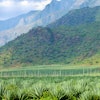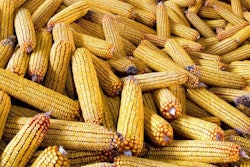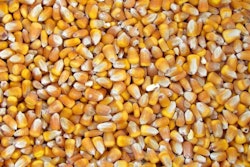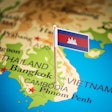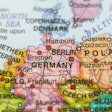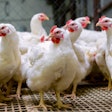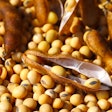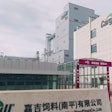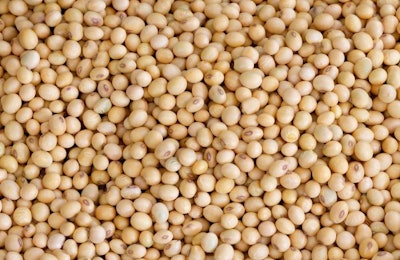
Several organizations in January signed a memorandum of understanding on responsibly sourced Brazilian soy, and those groups have recently provided an update on their respective initiatives and projects, which can be developed into a joint strategic plan for Brazilian and European soy supply chain partners.
The groups involved in the memorandum of understanding are:
- Aprosoja, the Mato Grosso soy and corn grower association
- ABIOVE, the Brazilian Oilseed Processors Association
- FEDIOL, the EU vegetable and protein meal industry association
- FEFAC, the European Feed Manufacturers’ Federation
- IDH, the Sustainable Trade Initiative
According to the groups, the memorandum of understanding “represents a direct, formal working relation between Brazilian soy producers and key European soy purchasers, sharing a common vision and action plan fostering responsible soy production in Brazil and its use in Europe. The private sector agreement is supported by IDH, who supports the objectives of the Brazil Forest Code, through the preservation of natural habitats and the promotion of good agricultural practices on soy farms.”
Progress update
In its update, Aprosoja said progress has been made on Soja Plus, a rural property management program for soy farmers that takes into account financial, social and environmental elements. It also highlighted Geocloud, a system that allows tracking of technical visits to farmers in real time and optimizes report sharing with farmers; Referência, which focuses on the financial management of properties and facilitates the integration of the Soja Plus program; and a pilot project in Mato Grosso, with financial and technical support from IDH, that aims to incentivize the recuperation of degraded land by farmers.
ABIOVE said it hopes to implement the Soja Plus program in the states of Piauí, Maranhão and Goiás as well as further expand the coverage in Minas Gerais and Bahia.
FEDIOL said it is important to inform European institutions about the progress made in environmental governance in Brazil in the public and private sector, especially in the context of the new Forest Code.
FEFAC wants to increase the responsible production of raw materials used in animal feed.
IDH looks to stimulate supply chain systems that facilitate the connection between sustainable production and its respective market demand. It said the World Economic Forum has invested $400 million to stop illegal deforestation in tropical areas, facilitate reforestation and boost farming. IDH also discussed PCI (Produzir, Conservar e Incluir – Produce, Conserve & Include), a development strategy in the fight against climate change to attract investments to the state of Mato Grosso to pool and integrate the different parties involved to obtain investments and tools to reach consolidated objectives.
Soy Sourcing Guidelines
Since FEFAC released its Soy Sourcing Guidelines in September 2015, nine responsible soy programs have looked into the recommendations and have met the criteria through the accompanying International Trade Centre (ITC) benchmarking tool. The benchmarking tool shows at what level responsible soy programs comply with the European feed industry’s minimum requirements on good agriculture practice, environmental stewardship and employee rights.
FEFAC said progress is being made on the preparation of the benchmarking of the Soja Plus program against the FEFAC Soy Sourcing Guidelines, which would be essential for its recognition as a responsible soy program to the EU feed industry.
The guidelines are made of 59 recommendations that outline the baseline criteria that FEFAC soy purchasers use to determine responsibly produced soy such as production and protecting community relations. FEFAC represents 25 national associations in 24 EU Member states and associations in Switzerland, Turkey, Serbia, Russia and Norway.
Amazon Soy Moratorium
Nearly a year ago, the Amazon Soy Moratorium – originally launched in 2006 for two years, and renewed annually since 2008 – was extended indefinitely by the Brazilian Soy Task Force (GTF). The GTF is a multi-stakeholder coalition that brings together the private sector, civil society and Brazilian government.
The Amazon Soy Moratorium guarantees market access only to soy products that are free from deforestation, slave labor or threats to indigenous lands. It was the first voluntary zero-deforestation agreement implemented in the tropics, and set the stage for supply chain governance of other commodities, according to the journal Science. Soy, palm oil, cattle and wood are the top four commodities that are most responsible for tropical deforestation on a grand scale, according to the Union of Concerned Scientists.

